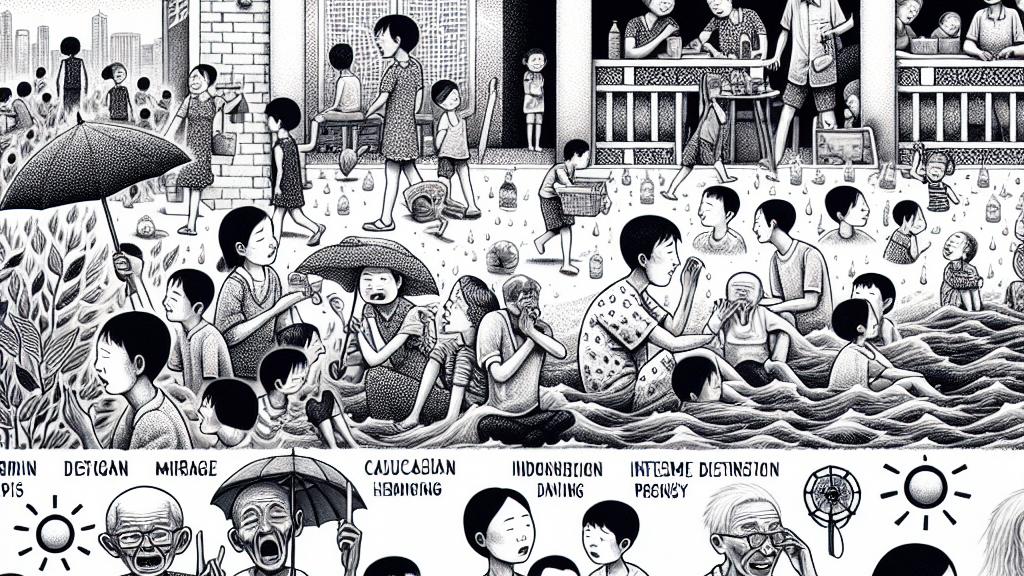China Sizzles: Record-Breaking Temperatures Leave Residents Melting!
Overview
- On August 3, 2024, Hangzhou, China, reached an unprecedented 41.9°C.
- The ongoing heatwave poses serious risks to health, agriculture, and ecosystems.
- China's ambitious climate goals face critique amidst rising greenhouse gas emissions.

A Record-Breaking Heatwave in Hangzhou
On August 3, 2024, the city of Hangzhou in Eastern China recorded a staggering temperature of 41.9°C, a historical high that underscores the increasing frequency of extreme weather events. This heatwave wasn't just an isolated incident; rather, it is part of a larger pattern affecting various regions in China where extreme temperature spikes have become alarmingly common. Residents have expressed their struggles with the intense heat, with many taking to social media to voice their discomfort and frustration under such extreme conditions. Local authorities have had to issue warnings advising people to limit outdoor activities and take precautions against heat-related illnesses, especially among vulnerable populations such as the elderly and children.
Wider Implications of Climate Change on Weather Patterns
The extreme temperatures being witnessed are not just local phenomena; they are symptomatic of the broader climate crisis impacting our planet. With climate change intensifying due to human activities, regions across the globe are experiencing unprecedented heatwaves, resulting in detrimental effects on public health, agriculture, and natural ecosystems. In China, the rising temperatures are predicted to disrupt agricultural productivity, leading to food shortages and increased prices. Additionally, these extreme climate events pose heightened risks for biodiversity as many species struggle to adapt to the rapid changes in their environments. For instance, certain crops may fail, and wildlife may find their habitats becoming unsustainable, thereby threatening the balance of local ecosystems.
China's Climate Strategy: Goals and Challenges Ahead
In acknowledgment of these growing threats, the Chinese government has pledged to reach peak carbon emissions by 2030 and aims for carbon neutrality by 2060. However, these ambitious goals are being scrutinized given China's heavy reliance on fossil fuels, specifically coal, which remains a primary source of energy for the nation. Critics argue that without a more aggressive stance on reducing carbon footprints, the targets may remain mere aspirational goals. There is an urgent need for a comprehensive approach that includes investments in renewable energy, improvements in energy efficiency, and public awareness campaigns to foster a culture of sustainability. As extreme weather events become the new norm, proactive measures are essential to mitigate the impacts of climate change and secure a sustainable future for generations to come.

Loading...